Is this a Green Terror or a Gold Saum?
In the early 1970s a cichlid known as “Silbersaum” (now Andinoacara stalsbergi) was imported to Germany from Peru. The knowledge at that time determined the fish to be Aequidens rivulatus, now known as Andinoacara rivulatus.
A short time later a very similar cichlid appeared in the hobby and became popular this was known as “Goldsaum”.
Since its origin of the new cichlid was unknown, it was thought to be an undescribed species, but when WERNER & STAWIKOWSKI, in 1985, collected fish in West-Ecuador (the type locality of Andinoacara rivulatus), they found only the cichlid known as “Goldsaum”.
Therefore, they concluded that “Goldsaum” as in fact Andinoacara rivulatus, while the “Silbersaum” must represent an undescribed species
This inital confusion between these two species is still prevalent in the hobby and industry today, but as you will see below it is very easy to distinguish which cichlid it is that is swimming in your fish tank
The Physical differences
Andinoacara rivulatus does grow slightly bigger than Andinoacara stalsbergi, but that does not help you work out which fish you have.
The Seams/Saums
The Orange Saum, as it name suggests has, in most cases, yellow, orange or red seams to its dorsal and caudal fins, Andinoacara rivulatus is also found with white seams, just to make it harder for us, but the steams of Andinoacara stalsbergi are much thinner, as you seen in the photos below.
Andinoacara stalsbergi - Green Terror
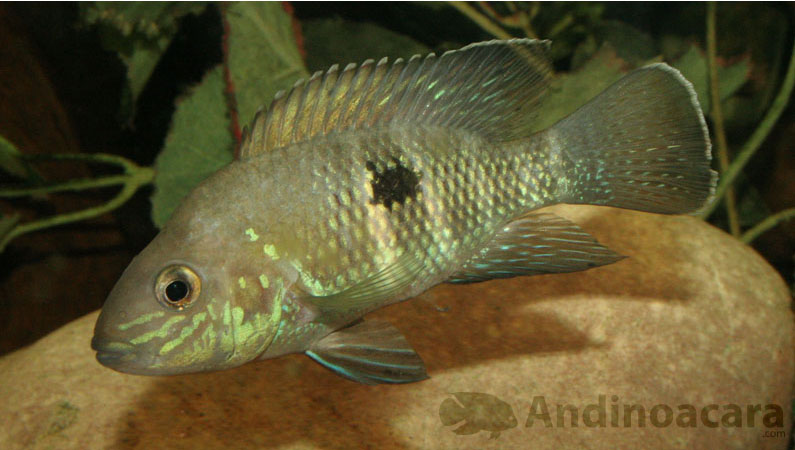
Thin white seams to the caudal (tail) fin, and the dorsal fin
Andinoacara rivulatus - White Saum
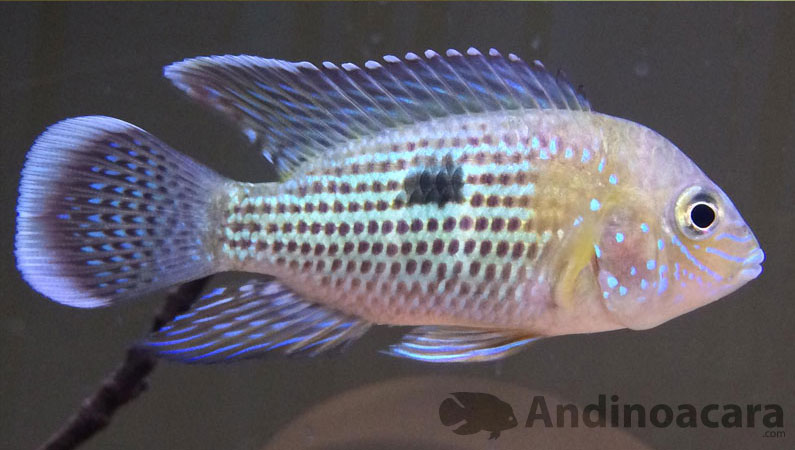
Thick white seams to the caudal (tail) fin, and the dorsal fin
Andinoacara rivulatus - Orange Saum
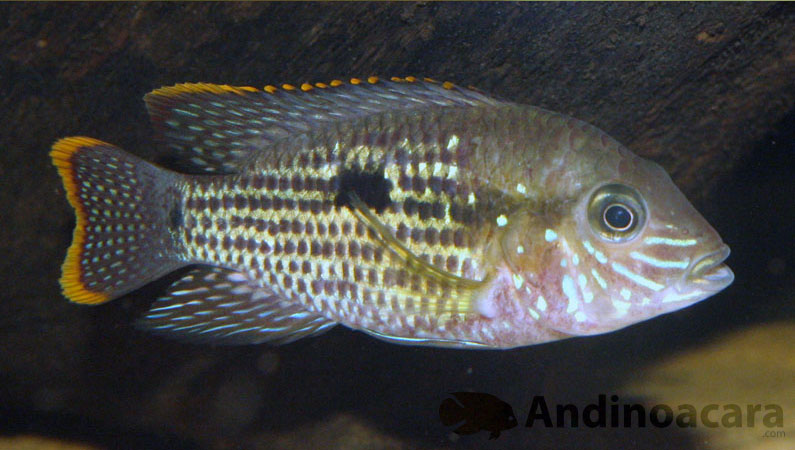
Thick Orange seams to the caudal (tail) fin, and the dorsal fin
Scales
Andinoacara rivulatus - Orange/Gold/White Saum
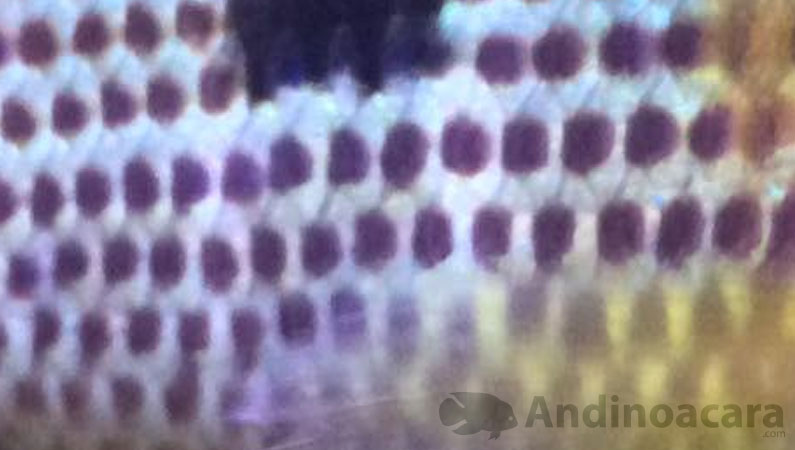
A lighter blue/green edge with a dark center
Andinoacara stalsbergi - Green Terror
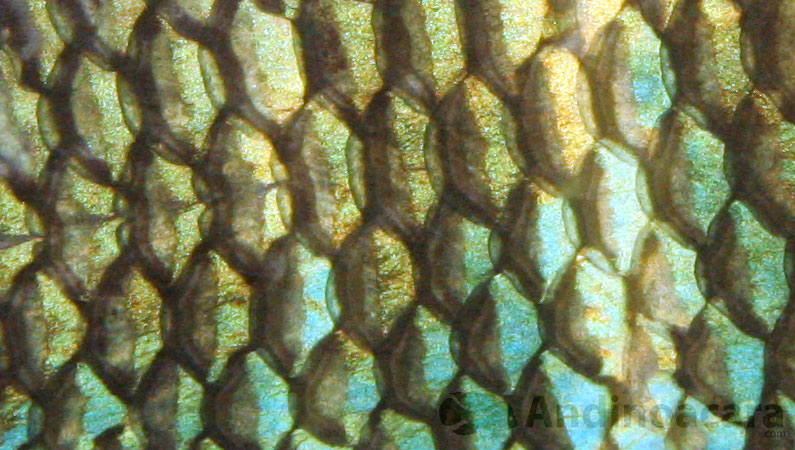
A dark blue/green center with a dark edge

